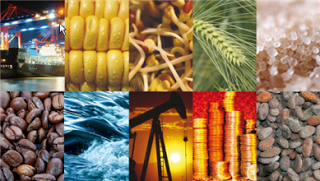 Eric Blair
Eric Blair
Activist Post
Anyone who has followed the investment world since the 2008 financial collapse knows that fundamentals no longer have any relevance. The curtain was pulled and the wizard of manipulation was revealed. Yet, the stock market managed to climb from lows of around 6,500 to recently over 12,000 with no tangible growth in the main-street economy — while insider selling has reached astronomical levels.
During this time the housing market continued to plunge; 15% of the U.S. is on food stamps and climbing; real wages have plummeted; international currency wars have broken out; and more bailouts and dramatic austerity budget cuts ravage the debt-ridden Western world. In other words, there has been no measurable recovery for anyone but the bailed-out financial institutions who caused the crisis in the first place.
The fallout from the 2008 collapse makes it difficult to grasp why the markets are up when the fundamentals point in the wrong direction. Even investment spikes in commodities seem to be more connected to a weaker dollar than to authentic economic growth with increased demand. Investors and average people alike are beginning to recognize that nothing is as it seems in the illusory global economy. Fundamentals and so-called reality no longer matter; it is universally understood that a much greater crisis looms no matter how much happy-talk comes out of our policy makers.
It seems that the major lesson from the financial crisis is that all paper investments, including suburban housing, no longer have realistic market price discovery. In other words, it is impossible to arrive at a real price for anything when artificial subsidies, restraints, or monopolistic cartels determine prices. The entire paper economy clearly has become a giant Ponzi-scheme, so true values cannot be determined or trusted with the available data.
Here are five tangible collapse-proof investments:
1. Food: Although your ConAgra or Nestle stock may seem like solid investments in times like these, they’re still locked up in the phony world of paper assets. Food commodities are also a highly manipulated market that, in the end, is still not tangible. Therefore, if you are fortunate enough to have large sums of money invested, why not use that money to provide for your family’s immediate food security first? If you believe food is a good long-term investment, then invest in converting your lawn to a perennial permaculture garden, create a seed bank, or simply stockpile your pantry. In other words, remove your money from paper food and put it into tangible food security for your family. Once you’ve reached a comfortable level of personal food security and you have reserve funds, only then consider investing outside of your immediate needs. The mega-money is moving to buy vast stretches of global farmland. If you possess the capacity, then you would do well to buy fertile farmland too.
2. Alternative Energy: If you believe, as many do, that alternative energy will be one of the only growth industries in the near future because of unstable oil and coal supplies, along with environmental concerns, then you should not look for the hottest new solar power stock symbol, but rather use your precious nest egg to invest in getting yourself off-the-grid first. Due to the ever-increasing prices for energy consumption, your return on investment will be realized immediately by making your residence more energy efficient through weather proofing or by installing solar or wind power. Another investment to consider is a personal fuel refinery like the biodiesel Fuelmeister or alcohol options to run your vehicles. Reducing your dependence on outside energy sources will be a priceless tangible investment even without the prospect of economic collapse.
3. Tools: This is a very broad topic which can be defined more easily as anything useful or required to help provide necessary consumer goods and services during a crisis or even moderate hardship. Important tools can be as small as garden and construction tools, sewing machines, food processors, guns and ammo, or as large as a production plant for solar panels. If there is an interruption in the supply of necessary goods, owning a means of energy production will be far more valuable than a collapsing stock portfolio. Again, once you have supplied yourself with enough tools for your own self-reliant needs, and if you have additional funds, consider buying or starting a local garden supply store and nursery, or buy small factory equipment to produce something of value. Even if you just break even on these endeavors, their tangible production capacity far outweighs the risks associated with paper investments, including letting devaluing cash sit in a money market account.
4. Precious Metals: Precious metals, especially gold and silver, have represented a tangible store of wealth since the dawn of modern civilization. Their intrinsic value is deeply embedded into the global cultural psyche, and demand for silver and other metals has never been higher. Some may argue that the “foolproof” investments listed in this article are not liquid in terms of quickly converting them to cash — which is true for many of the items for self-reliance. Gold, silver, copper, and other metals are much easier to liquidate if cash is needed. Therefore, investing in metals may prove to be one of the most advantageous strategies given the fragility of the financial system. Rather than investing in ETFs and other commodity securities, take possession of physical gold or silver and store it in a safe place. If you have a limited budget, buy junk silver, or forage for used roles of copper wiring when you hear of office closings.
5. Useful Skills: You can never go wrong learning or polishing useful skills. Investing in yourself is never more vital than in times of great uncertainty. Don’t be confused, however, I don’t mean to go out and spend a bundle getting a worthless new college degree. It is far more beneficial to learn how to expand your hobby skills or other passions into productive capacities. In the best-selling book How to Survive The End of the World As We Know It, author James Wesley, Rawles, proclaims that every household should have a side business as a cushion in case catastrophe strikes. Well, catastrophe has already struck 53% of the American workforce who are unemployed or under-employed. Since the job market is not secure, it is worth the investment to develop skills to weather a collapse scenario. Learning simple skills such as making candles or soap, building sheds, gardening, etc., not only provides valuable products, but also gives you a chance to have fun family projects.
Due to the larger economic crisis that seems to be approaching, and the utter lack of trust in paper “assets,” we would be wise to invest in tangible investments that provide for our self-reliance. It is the most important investment you can make during times of crisis where only human necessity represents the real world.




Be the first to comment on "5 Collapse-Proof Investments With Tangible Fundamentals"